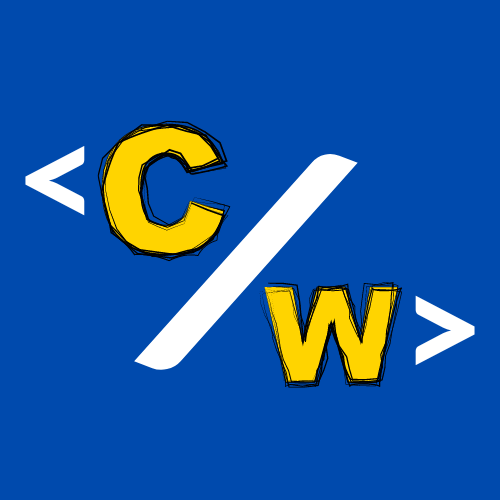What's the next big thing to start your career with?
 Yashraj Singh Negi
Yashraj Singh Negi 
This question arises almost in everyone's mind who is not clear about what to choose as a career. After struggling with this question for a long time, I started to find out the real answer to it. I read several blogs on the internet, watch multiple videos on YouTube and attended live sessions. So to understand how to get into the industry, we first need to understand the history of the Industrial Revolution(don't worry it won't be that boring like your history class).
Back then when...
The industrial revolution is a period of significant economic, technological, and social change that occurred during the late 18th and early 19th centuries, which led to the transition from an agrarian and handicraft economy to an industrialized one. The industrial revolution began in Great Britain and quickly spread to other parts of the world. The first three industrial revolutions were:
The first industrial revolution of the 18th century saw the introduction of mechanization and steam power, leading to the widespread use of machinery in manufacturing.
The second industrial revolution of the late 19th century saw the introduction of mass production and assembly line techniques, leading to a significant increase in productivity.
The third industrial revolution, or the Digital Revolution, of the late 20th century, saw the widespread adoption of computer and information technologies, leading to the automation of many manufacturing processes.
And now it's the 21st century, and there is again an industrial revolution that is evolving and that's known as Industrial Revolution 4.0.
What is Industry 4.0?
Industry 4.0, also known as the Fourth Industrial Revolution, is the current trend of automation and data exchange in manufacturing technologies. It includes the integration of advanced technologies such as the Internet of Things (IoT), artificial intelligence (AI), and cloud computing, to create a more connected and efficient industrial ecosystem.
So now it is somewhat clear that if you need to build something unique or skyrocket your career then you must understand industry 4.0. Let's talk about this in detail.
In one of the YouTube videos, I came across a man named Dr. Ritesh Malik, a business mentor and an investor. He explains the topic in a simple mnemonic as 'RANIA-53'. Where,
R - Robotics - First of all we need to have a clear knowledge that robotics is not something we see in movies but it is far more than that. The robot comes in multiple formats. It can be software or process automation or it can be something more. The point is robotics is going to be the main building block of Industry 4.0. The integration of robotics in manufacturing processes allows for increased automation, improved efficiency, and greater flexibility in production. One of the main benefits of robotics in Industry 4.0 is the ability to automate repetitive and dangerous tasks, which can improve safety and reduce the risk of human error. Robotics can also be used to perform tasks that are difficult for humans, such as working in extreme environments or handling hazardous materials. For example, what if we could send robotic nurses to COVID wards or what if we can use it in heart surgeries(Don't try to copy these ideas, many startups are already doing this ; )).
A - Artificial Intelligence - AI works by using algorithms to analyze large amounts of data and make predictions or decisions. These algorithms are designed to learn and improve over time through a process called machine learning.
One of the main benefits of AI in Industry 4.0 is the ability to analyze vast amounts of data generated by the Internet of Things (IoT) devices and other sensors, and turn it into actionable insights. This can be used to optimize production schedules, improve inventory management, and predict demand for products. AI can also be used to monitor the performance of machinery, detect potential issues, and predict maintenance needs, which can increase efficiency and reduce downtime.
For example, A radiologist can perform a CT Scan in 15 minutes in his 8 hours of shift, but an AI-enabled machine can take 100 CT Scans in 1 hour. Many African countries don't even have radiologists in their whole country, just because of the high prices of MRI machines. With AI in the game, it can change the whole medical industry and make it more feasible for the last man standing on this planet. Just think of the impact it is going to put in the coming years.
N - Nanotechnology - Nanotechnology in Industry 4.0 refers to the use of technology at the nanoscale, to create new materials and devices with improved properties and capabilities. This can be used to improve manufacturing processes, create new products and services, and increase efficiency and sustainability. One application of nanotechnology is Carbon fiber, one of the lightest and strongest materials being used in many industries right now. For example, before we use a space rocket only once, which means we used to blast it in one flight to space but, SpaceX, a leading private space exploration agency, has found a way how we can reuse rockets even 64 times. How? Nanotechnology. Nanoscience and nanotechnology are the study and application of extremely small things and can be used across all the other fields.
I - Internet of Things(IoT) - One of the key components of Industry 4.0 is the integration of IoT devices and sensors throughout the manufacturing process. This allows for real-time data collection and analysis, enabling manufacturers to optimize their operations and make better decisions. For example, IoT sensors can be used to monitor the performance of machinery, detect potential issues, and predict maintenance needs. This not only increases efficiency and reduces downtime, but also improves safety by identifying potential hazards before they occur. An example of IoT can be seen in our smart home appliances. With the automatic switching ONN of lights when you enter your house or automatic adjustment of the temperature of the AC when we switch it on or when the overhead tanks of our houses get overflow, a sensor in that device starts an alarm which tells us to switch off the motor. IoT has more to give in the coming future and there are many things we can take out from it.
A - Autonomous - Automation in Industry 4.0 refers to the use of advanced technologies such as robotics, artificial intelligence, and the Internet of Things (IoT) to automate and optimize manufacturing processes, improve efficiency, and increase flexibility in production. In coming years we can think of the future with less human waste, less human effort and more productivity. Electric vehicle and green energy is the future. All the effort-driven work will be shifted to the robots and all the creative work will be for humans. We can also think that in the coming years, we will be not thinking twice to do whatever creativity we want like singing, acting, dancing, sports, painting and whatnot. But to make this happen we need to know and grow Industry 4.0 more rapidly.
5 - 5G - The role of 5G in Industry 4.0 is to provide high-speed and low-latency connectivity for the Internet of Things (IoT) devices and other technologies used in manufacturing. 5G networks are designed to support a large number of connected devices, handle high-bandwidth applications, and provide reliable and secure connections. This enables real-time data collection and analysis and allows for more efficient and connected production processes. It also allows for advanced technologies such as robotics, augmented reality, and autonomous vehicles to be used in manufacturing, with minimal latency and higher reliability.
3 - 3D Printing - The role of 3D printing in Industry 4.0 is to enable the on-demand and decentralized production of goods. It allows for the rapid prototyping and production of complex and customized products with minimal waste, reducing the need for traditional manufacturing processes and inventory. 3D printing can also be integrated with other Industry 4.0 technologies such as the Internet of Things (IoT) and artificial intelligence (AI) to enable real-time monitoring and control of production processes and optimize production schedules and reduce downtime.
So this was the interface of Industry 4.0 and if you want to build something great or start a business then you must think around these topics because this is the future and this will take you places.
Many futuristic things are ongoing right now like space marketing, cancer detection by AI, Geographic scans to multiply crop production, robot receptionists, ChatGPT, AI thumbnail makers, self-driving cars and whatnot.
But...
But what if I don't like to learn about new technologies and stuff? Don't worry you don't need to know the technical part of these things but just keep yourself updated with new technologies. Just know the what's and how's of new technologies and believe me one day you will figure out what you need to do. Whatever your interest may be but you need to build it in the periphery of technology to make it scalable and more profitable with fewer efforts.
And for those who were deciding what to do, here's an answer for you. See you next week.

Subscribe to my newsletter
Read articles from Yashraj Singh Negi directly inside your inbox. Subscribe to the newsletter, and don't miss out.
Written by

Yashraj Singh Negi
Yashraj Singh Negi
Hello, I am the author of the blog "<Code/Week> with Yashraj". I am a passionate coder and have a deep interest in the latest programming trends and technologies. My aim is to be a part of a community where I can learn new things and also at the same time contribute what I have. Whether you are a beginner or an experienced coder, you will find something new and exciting in my blog. Join me on this journey and let's learn to code together!